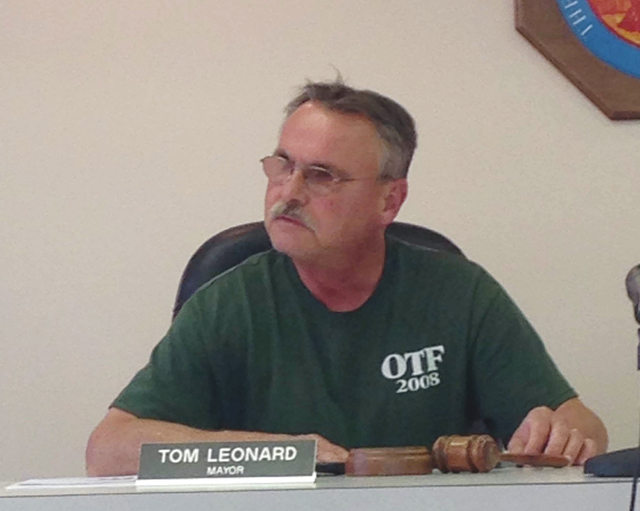RIPLEY — A billing error from American Electric Power is causing major headaches in the Ripley village administration.
According to Ripley Administrator Pete Renshaw, AEP Ohio included a capacity charge this year for municipalities and corporations that purchase energy on the wholesale market. But AEP forgot to include those on their monthly bills. As such, the Village of Ripley received a bill stating that they owe a total of $152,092.49 in capacity charges they didn’t know they owed.
“Somebody in (AEP’s) billing department dropped the ball and did not include what’s called a capacity charge,” Renshaw said during Ripley’s August 25 Village Council meeting. “That charge comes anywhere from $25,000-30,000 per month, and that wasn’t included on our bill. They caught it in July.”
Prior to receiving the new bill with the additional charge, Ripley’s total July bill was $120,741.71. With the additional charges, the bill balloons up to $272,834.20.
“We went ahead and paid the $120,000,” Renshaw said. “We were budgeted for $85,000 or so per month, to pay AEP. It did not include the charge, because we didn’t see it.”
Renshaw and Ripley Mayor Tom Leonard said that they would like to negotiate with AEP to see if they can pay the overdue $152,092.49 over the rest of the year and not in a lump sum, which they probably could not afford.
“It’s just that they hit us so hard,” Leonard said of AEP. “We didn’t know it was on (the bill). They neglected to notify the municipalities, not just Ripley. I don’t like getting hit with a $152,000 charge if they didn’t tell us.”
Renshaw said that because of the new charges, they’ll have to move some money around in order to afford payments.
“It’s up to us, you, as a legislative authority, to decide how we want to pay this,” Renshaw said. “We’re not budgeted for $120,000 or $130,000 a month for the electric.”
Renshaw did confirm that the village was making enough money on their electric sales to their residential and commercial customers that they can cover the costs.
In addition to the AEP controversy, Renshaw discussed a number of topics at the Ripley village council meeting. Renshaw said that the village had finally closed on their U.S. Department of Agriculture revolving loan fund loans, which went out to two local businesses, and they’ve already received their first payment back.
Renshaw is still looking into hiring a new flood plain administrator, which would cost the village $90 per hour for no more than 30 hours per year.
There was another discussion into the discoloration of some of the water lines, and a discussion about the need to flush some of the lines. One particular line in Ripley was found to have an excess of manganese.
Leonard opened the meeting by discussing how the public bathrooms were vandalized again, and he had put up a sign to notify visitors that it was closed. Village council said that they would look into purchasing cameras to install and potentially catch vandals and criminals.
Ripley Fiscal Officer Heather Haucke received village council’s unanimous approval to perform an intra-fund transfer from capital outlay into the water and sewer fund. $447.81 was moved into the water fund and $6,100 was moved into the sewer fund.
All members of village council were in attendance.
Councilwoman Roberta Sidwell made a motion to move into executive session to discuss personnel matters. No action was taken after village council came back into regular session.




